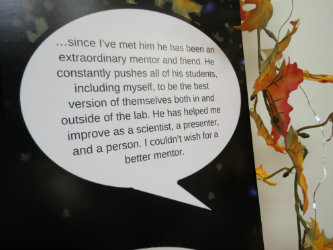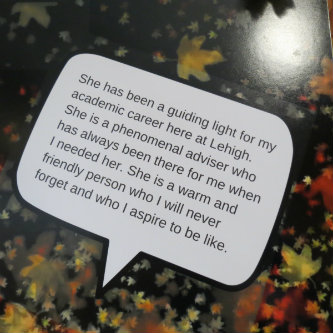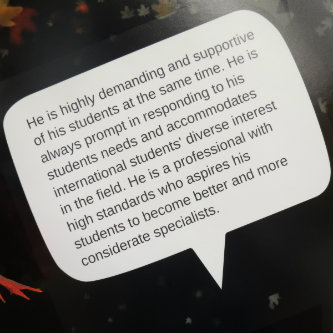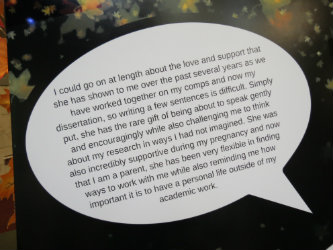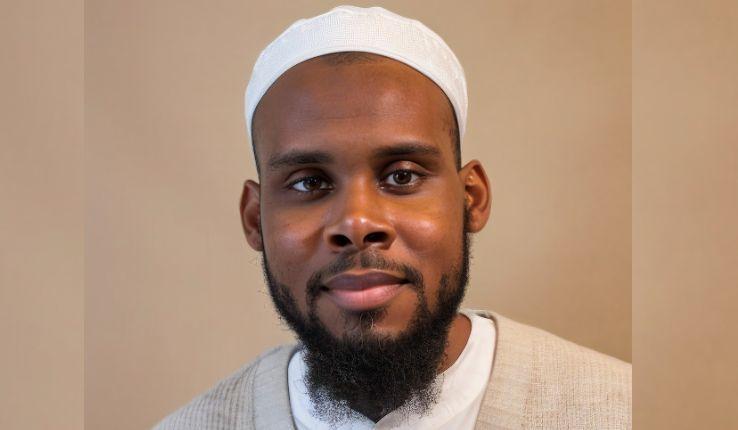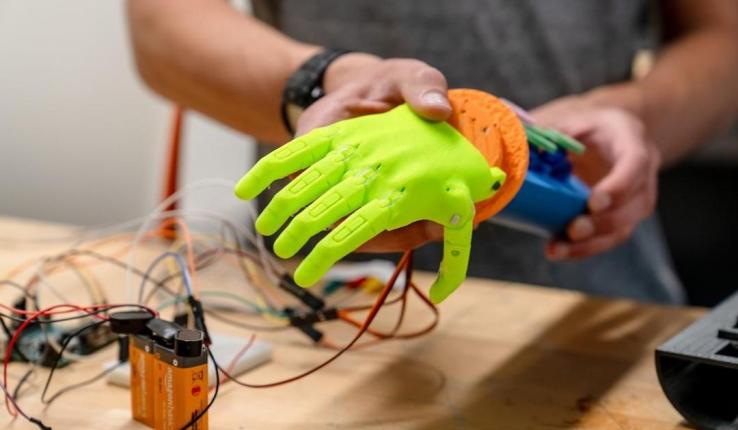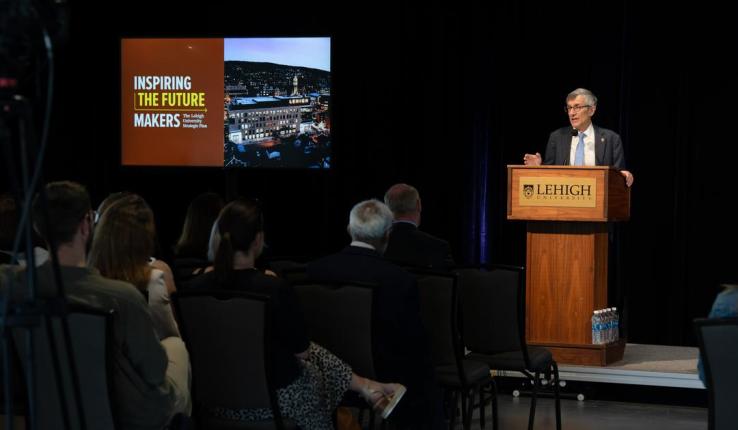Graduate Students Celebrate Faculty Mentors with Appreciation Event
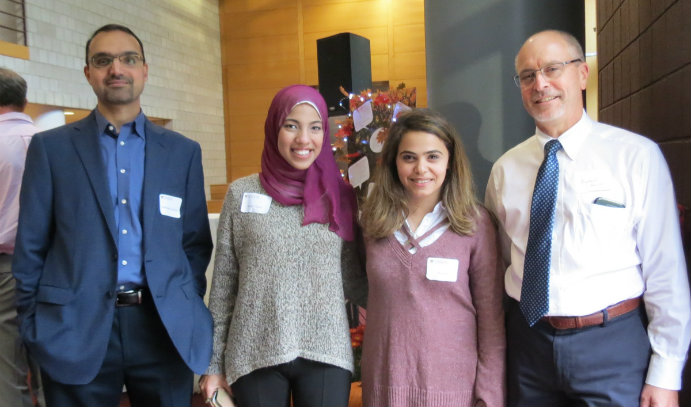
The Graduate Student Senate honored 44 faculty members for outstanding mentorship at its inaugural mentor appreciation event.
Lehigh graduate student Iiona Scully began her graduate school career at a different university where, she says, she experienced poor mentorship.
“[That experience] made me believe that being a graduate student was not something that was for me,” she says. “And that is something that no mentor should ever make a student feel, in my opinion.”
Good mentors, says Scully, “make you want to be here, make you want to work your hardest and encourage you to do so in whatever way that they can.”
Here at Lehigh, Scully, a doctoral student in psychology, recognizes these qualities in her mentor, Almut Hupbach, associate professor of psychology. Hupbach was among 44 Lehigh faculty members recognized at the Graduate Student Senate’s inaugural mentor appreciation event on Nov. 3.
Graduate students mingled with their mentors and enjoyed refreshments in Zoellner Arts Center’s Butz Gallery during the late-afternoon reception, which included remarks by Kathleen Hutnik, associate dean for graduate student life; Nick Ungson, doctoral student in psychology and president of the Graduate Student Senate; and Scully, who serves as secretary of the Graduate Student Senate. Ungson and Scully organized the event, for which they asked graduate students to submit nominations and explain their reasons for nominating a particular mentor. Mentors received certificates of recognition, and quote boards positioned around the room featured excerpts from nomination forms.
“For all of the diversity that characterizes the research and hard work that graduate students do here at this university and in universities all across the world, one thing remains constant, and that’s mentorship,” Ungson said at the event. “Mentorship is crucial, regardless of the field of study. Mentors are crucial to junior scientists, professionals and scholars to reach their potential both inside and outside the classroom.”
The Graduate Student Senate, says Ungson, works to “empower graduate students to help each other through problems that arise during graduate school. One of those can sometimes be problems with advisers or mentors. On the flip side of that, it’s important that we recognize when that kind of stuff is going right. We’re hoping that this [event] is a way to highlight those people who are making a difference in students’ lives.”
Hutnik and the Graduate Student Senate have been developing a comprehensive strategy to enhance mentoring at Lehigh that includes, she says, “disseminating guidelines for both students and faculty, offering workshops to faculty and students on best communication practices, and recognizing greatness.
“An adviser can make or break a person's doctoral experience,” says Hutnik. “Supportive and dedicated advisers help students reach the highest standards and help them realize capacities and capabilities that the students themselves maybe never thought possible. Developing this relationship is very emotionally and intellectually intensive and requires time and attention, and I think we don't thank faculty enough who are invested in this one-on-one aspect of graduate education.”
Dominic Packer, associate professor of psychology and associate dean for research and graduate programs in the College of Arts and Sciences, and Keith Moored, assistant professor of mechanical engineering and mechanics, received multiple nominations.
“Graduate students are fundamental to everything we do at Lehigh,” says Packer. “In Arts and Sciences, they play a critical role in the educational mission, serving as teaching assistants, lab instructors, recitation leaders. They are also key to our research mission, whether serving as research assistants or advancing scholarship of their own. It is a tremendous pleasure to work with our graduate students at Lehigh, and they are the reason I—most days, at least—come to work with a spring in my step.”
“I find the process of the mentoring students to be very rewarding,” says Moored. “It is exciting to look back at the end of each year to see the growth and progress that they have made. It is fascinating to see them take on a part of my academic legacy and make it their own. I have been very proud of each of my students’ growth over the past four years. I can't wait to see what will happen in four, or ten, or twenty more years. I believe that my role as a mentor is to let them develop in their own way, and to simply provide the guide rails so that they don't go off track. In that way each student's path is their own and each has their own unique strengths and weaknesses. It makes for a dynamic and rich academic landscape.”
Photos by Audree Chase-Mayoral
Posted on:


